Traveling to Vieques after Hurricane Maria
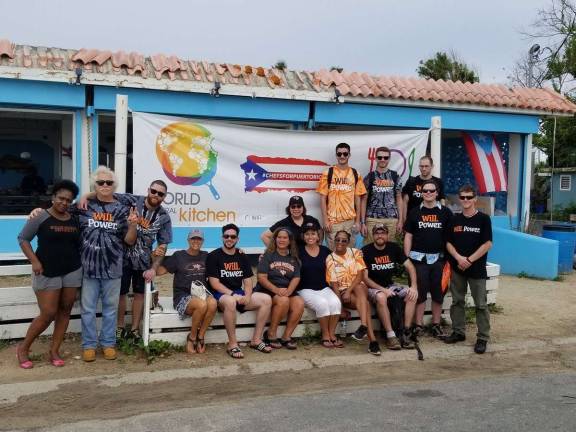
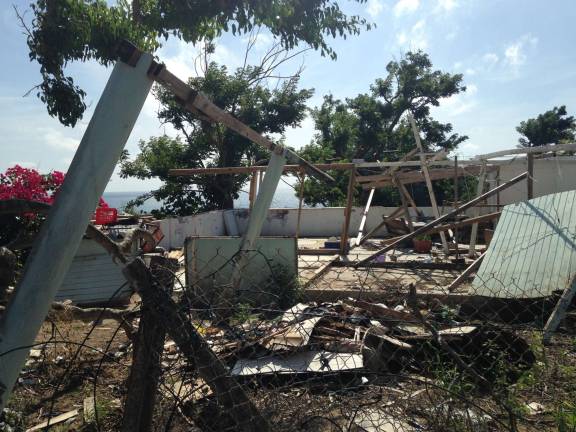
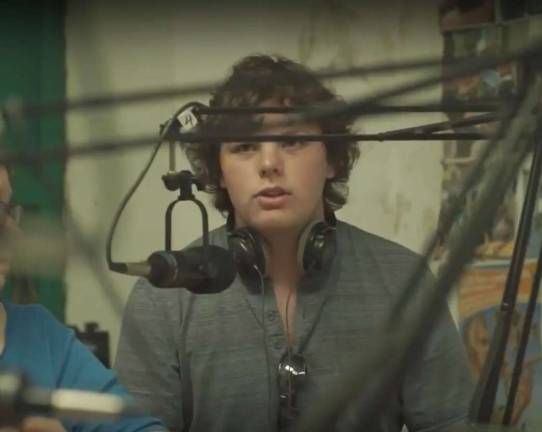
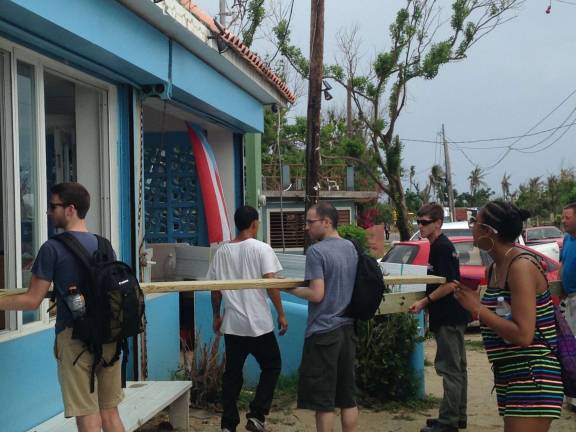
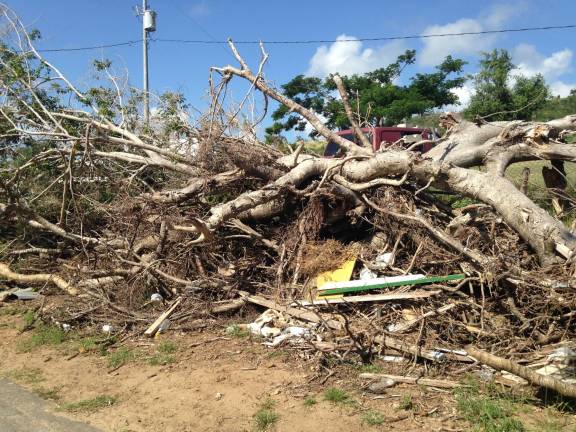
By Tiernan Doyle
Vieques, Puerto Rico
About seven miles off the eastern coast of the main island of Puerto Rico sits an island only 24 miles long and four miles wide. This is the island of Vieques, an island rich with history and culture, and that currently is still recovering from the immense damage done by Hurricane Maria.
I’m a broadcast journalism student at William Paterson University, having graduated last year from Sparta High School, and I remember watching on T.V. as Hurricane Maria barreled down on Puerto Rico. It was this event that moved me to earn my amateur (HAM) radio license, in order to help in emergency communications. This newfound ability led me to take part in a trip that, little did I know, would change my life forever.
Back in January, I had the chance to travel with eight other William Paterson students and faculty to the island of Vieques, Puerto Rico, in order to establish a sister relationship between the island’s radio station, Radio Vieques, and the university’s radio station, Brave New Radio. Our mission was to also assist in humanitarian work, and to educate locals on the benefits of HAM radio. I was chosen to go on the trip thanks to my HAM radio experience and would work with student and fellow operator, Matthew Mullins, on the best way to utilize HAM radio on the island.
For the seven days that we were in Vieques, we saw just how dire of a situation it was, with most of the island still without power, hot water, cell service and wi-fi. While phone service was scarce, I was able to use HAM radio as a way to communicate with other students, as well as to assist in humanitarian work, such as delivering food to locals.
To me, it was concerning to see how the U.S. government had failed to provide the people of Vieques with proper supplies to aid in the recovery before the next hurricane season. According to locals, some of the supplies meant for them were left on the main island, leaving Vieques to fend for itself for the first month after the hurricane. One family we met worried that their diabetic child wasn’t going to be able to get Insulin before help arrived, and most others felt as if their houses were going to fall down at any moment during the storm. Debris made up of trees and houses lined almost every roadside, and we would come across the mere skeletons of houses that were destroyed by Maria. When wi-fi and cell service went out, the island resorted to using a limited number of satellite phones, and each resident was given at least 2 minutes to make a call to a loved one telling them that they were alive, all while the possibility of the person on the other side not picking up loomed over everyone’s heads. Medical care was also limited, with the largest clinic, which we saw, being an array of tents in the clinic parking lot, as the building was condemned for health reasons after the storm.
Still, an observation we all made was that the people of Vieques addressed the situation with incredible optimism and would greet us all with smiles as we passed by or said hello. When someone’s house was destroyed, other residents kindly took their neighbors in and assisted them in rebuilding. This display of courage greatly inspired us and allowed us to get to know the people of Vieques better as we helped with getting food to senior citizens, giving out toys to children, and helping out in the island’s largest community garden.
We wanted to give back as much as we could to the island community, and we did so not only through our volunteerism but also with Brave New Radio donating a computer to Radio Vieques. Brave New Radio has also created a website, gobrave.org/Vieques, where it is possible to see movies documenting our trip to the island, as well as a link to donate to the project to help the families of Vieques. Donations of any amount are greatly appreciated, and every little bit helps in the recovery of the island. The group, including myself, will be returning to Vieques on June 23, and we hope to see a great improvement on the island’s recovery, but know that it will take much longer for a full recovery to be accomplished.